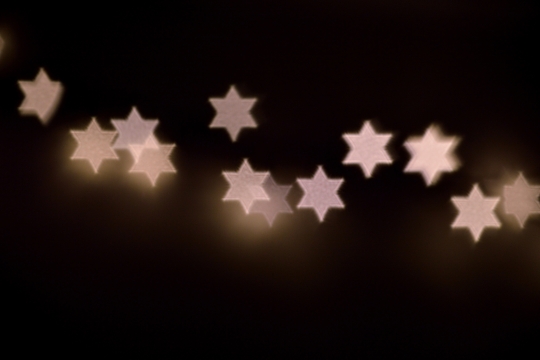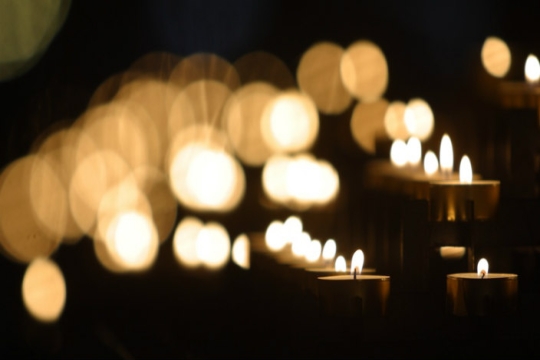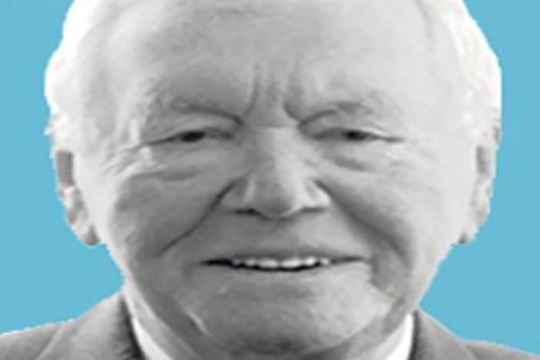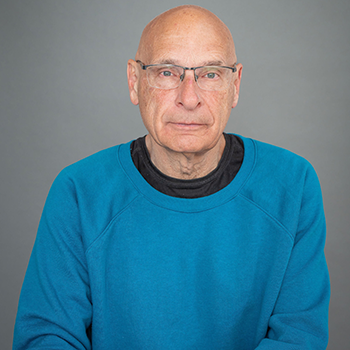
When I first got my diagnosis of early-stage dementia, everything went black. The only things that were on my mind were dementia and dying, sometimes with dementia being the biggest shock and sometimes dying being the biggest shock. That was all there was.
It was only after a certain period of time that I paid attention to the fact that, in addition to dying, I was also living. In the beginning, I thought of dying and living as separate. But then they came together. I began to understand that living and dying were flowing together and each was affecting the other. Knowing that I was dying made my living richer, and how I was living gave dying more meaning. On a long walk one beautiful day, I had a thought: When living and dying dance a duet, what music will I play?
As my condition developed, the music I played changed. All my life, including in my career as a management consultant, I was thinking about lines and boxes. That's how I defined who I was and what I did. But thinking of my life as music changed my outlook. As my brain started working less, space opened for my feelings to be more present. That led to a new balance, a more even balance, between thinking and feeling. To be completely candid, I like being in this balance better.
As I was moving into this new world, I felt how much my reality had changed. I needed guidance in this new reality to continue living my life with this horrible condition of dementia continually present.
Since I've long felt connected to reading the weekly Torah portion, I started reading the weekly portions to see if I could detect anything that would give me guidance about relating to my dementia. As I continued, I found that each week's portion can relate, in some way, to dementia. I've now been doing this every week for about 10 months and publishing my reflections at DementiaInTheTorah.com.
Every week, I find a reference to dementia. For example, in Exodus 27:20, the oil that the people of Israel are to bring for the Eternal Lightis described in just one verse between twospecific descriptions of building the Tabernacle: "You shall further instruct the Israelites to bring you clear oil of beaten olives for lighting, for kindling lamps regularly."
This short, simple description says something to me about dementia - and may say something to those of us who are living with the effects of aging: each person should bring the amount and quality of oil that they are able, without a specific measure of quantity or quality. Each person is to do their best, whether they are a skilled oil-maker or a person with dementia; both are what HaShem wants. They are all to bring their portions of oil together for the common purpose of keeping the Eternal Lightshining -- and I would say that people doing their best, together are the Eternal Light.
Along the way, I found other things that helped me learn to live with dementia. One thing is to have an activity that brings meaning to life as it is. It may sound odd that dementia has become a meaningful part of my life. I have established a mission to raise awareness and have conversations about dementia in the community. I pursue this very actively because it is doing some good for people to bring something out into the open that is so common, yet so rarely spoken about. This is what I have set as my mission for as long as I am lucid and able to do it.
Another thing that I've found really valuable is participating in support groups. Most of the support groups I am in are online, which works very well. I feel a lot of support from being with other people who are in a similar condition. We are able to speak openly and understand each other very well. A bonus of Zoom is that each person's name is shown by their face, so the problems with remembering names, faces, and context go away as I see their names, faces, and context (support group) on the screen.
Lastly, I now prepare and do things as they come up instead of muddling my mind by leaving them until later. This includes completing various documents and preparing to carry out my decision to end my life before dementia puts me in a non-functioning condition. Surprisingly, one of the most meaningful acts was to create my tombstone, even though I've decided to be cremated. What will my tombstone be? What will it express? These thoughts are part of how I find closure with my dementia.
I'm dying and living, living and dying while I play the music that I choose. That is what I am doing.
Related Posts

For Some of Us the Holidays Are Just…Hard

This Tishah B'Av, Act as if There is No God

